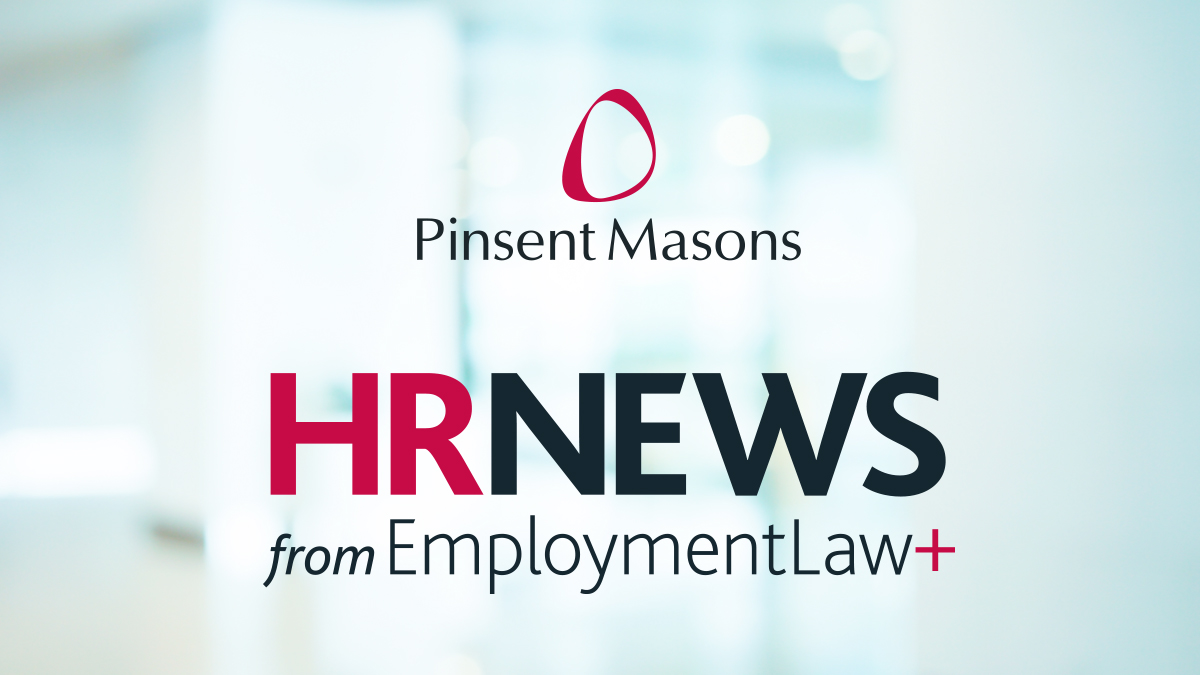The government’s long-awaited immigration white paper has been published. It sets out a strategy to reduce net migration and reduce reliance on overseas recruitment, with a range of proposals that will directly impact HR. One of the headline changes is a tightening of the Skilled Worker visa route, raising the bar for foreign nationals seeking to work in the UK. At the same time, a new Temporary Shortages List is being introduced to help employers navigate ongoing recruitment challenges, but access to that list will come with conditions. So, how will this impact employers? We’ll ask one of our immigration experts.
The white paper, ‘Restoring Control over the Immigration System,’ confirms the government’s intention to make the Skilled Worker route more selective. Qualification requirements will be raised to degree level, effectively closing off the route to many overseas applicants currently eligible for roles at lower skill levels. This change will hit sectors that have relied on intermediate-level roles, particularly in care, logistics, and parts of hospitality.
To address short-term gaps, a new Temporary Shortages List will run alongside the Skilled Worker route. This will allow some lower-skilled roles to be filled from overseas, but with much tighter controls. The list will be based on recent MAC recommendations and aligned with the UK’s industrial strategy. Access will only be granted to employers who can show a long-term commitment to domestic workforce development through a clear strategy.
There are also restrictions for those using this route. It is likely that individuals recruited under the Temporary Shortages List will not be allowed to bring dependants with them—or will face tight limits on who can join them. Employers must also expect regular review and revision of the list, meaning access may be time limited.
Add to this a sharp increase in the Immigration Skills Charge and the message is clear: employers will need to rethink their workforce planning. The government’s direction of travel is to reduce reliance on lower-skilled overseas labour and shift the burden back onto UK-based training and recruitment.
So let’s hear more on this. Earlier I caught up with immigration specialist Alex Wright, who joined me by video link from Manchester to discuss it:
Alex Wright: “I think this is going to be a very significant change. I think this is one that, in fairness, you know, we have seen coming for a while. So there are a couple of things that we're looking at. So post Brexit, one of the things that happened was that we reduced the skill level for sponsorship from RGF level 6 - approximately degree level - to RGF level 3 - approximately A-level - and, naturally, as we left the single market employers needed to widen their labour pool. That did make sense, but what that has resulted in is a significant increase in the number of people applying under that route and the Home Office have decided that they want to put the skill level back up to RQF level 6, so approximately degree level, which is going to significantly limit the number of professions where you're able to sponsor skilled workers. So everything that fell into what was there before, RQF level 3 to 5, are no longer going to be eligible for sponsorship. The Home Office have, however, confirmed that people who are already sponsored on those routes at that level will be able to maintain their immigration status, extend and settle in the UK. So if you're already in the UK and sponsoring people under those skill levels you don't need to panic, but that may well limit the number of professions that can be sponsored in the future. The other thing that we are going to see, we think, is likely to be a salary increase. So we had significant salary increases come in last year, in April, and we think we're going to see another rise of those. So it might well be that even with the skilled workers who can be sponsored, we're going to see higher salary thresholds required for people joining the skilled worker route.”
Joe Glavina: “As I understand it, those that are going to be using this route could face limits on bringing in dependents, and also to tighter visa conditions. Is that right?”
Alex Wright: “So for those people who will fall under the sort of the more traditional skilled worker route who meet the skill and salary level requirements, we believe that things are going to remain as they are. Where we believe there's going to be a difference is in what's called the Temporary Shortage List. So some of your viewers might be familiar with its other forms, Shortage Occupation List, Immigration Salary List, whatever the Home Office like to call it, which is generally a list of professions where we make it slightly easier to sponsor people because there are skill shortages. That list is being abolished and is going to be replaced with the temporary shortage list. That is going to include some of the professions that used to be eligible for sponsorship between RQF level 3 to 5. So some of the professions that are no longer eligible automatically for sponsorship will be there based on labour market need and the Migration Advisory Committee and other organisations are going to advise the Home Office on the types of professions that need to fall into that. We believe that it's in those occupations, those ones that might be granted that special permission to sponsor with an RQF level 3 to 5, that there will be limits on dependence. The white paper simply just says limits on dependence but we don't know what that means yet. Based on previous Home Office action, I would assume that means probably not being able to bring dependents at all, or it might be they have a more generous system where you can bring in dependents if additional financial criteria are met. Unfortunately, we simply don't have the detail on that just yet.”
Joe Glavina: “What about the new degree level qualification requirement, Alex, because it seems to me that's going to exclude lots of roles that are currently eligible under the Skilled Worker route. That could be an issue for clients.”
Alex Wright: “Yes, it really could be. Certainly, we have plenty of clients and people that we work with who regularly sponsor. I think it's worth pointing out the Home Office rhetoric on what they define as low skilled has changed. What we used to see was the definition the Home Office would give for low skilled was, I think, below RDF level 3 so, essentially, what they would define as unskilled - I don't think it's a nice term for it, but unskilled labour. The Home Office are now using that rhetoric to refer to anything between degree level and A-level so that's going to refer to a lot of professions where there are genuine needs in the UK. So, for example, lab technicians, some types of engineers, some types of project manager. Professions that we sponsor very regularly are now no longer going to be automatically within skilled workers. So employers are going to want to keep a very, very sharp eye on what the skilled worker list looks like afterwards and plan accordingly in terms of their recruitment.”
Joe Glavina: “Finally Alex, is there anything that you actually want employers to do right now. Although, given this is just a white paper perhaps it’s too early to plan.”
Alex Wright: “I think you're right, Joe, it is possibly a little too early to plan. We are still at the white paper stage. We do not have actual legislation on this yet and I think it's worth noting that whilst there has been a lot of publicity, and a lot of rhetoric, around this Act and how revolutionary it may or may not be, I've got to be honest, my perspective is, I don't think it's a massive series of changes. This is a tightening of a lot of mechanisms we've seen tightened before but I think what we need to remember is that a huge amount of the stuff that's in the white paper is being kicked down the road and by some way. A lot of the things that the Home Office want to do, the temporary shortage list, bringing in these external bodies to monitor which sectors should and shouldn't be able to sponsor, a lot of this is going to require a huge amount of setup. So whilst there are some parts of this that I think are going to be brought in fairly quickly, there are some parts which I think are going to be brought in later. It could possibly be until April next year when see some of the changes. One of the things that I think employers absolutely can start planning for now is the Home Office are planning on making an increase in what's called the Immigration Skills Charge. So that's the charge that goes every time you sponsor somebody on a Certificate of Sponsorship, you make a payment to the Home Office for that labour, which is meant to go into scheme sports training and apprenticeships. That's, for a large organisation, currently £1,000 a year. That is going to rise by 32. Now in terms of making a change like that, that's not going to require any particular legislation, that can be done by statutory instrument, so I think we could potentially see that change brought in fairly quickly. So employers might want to prepare themselves for that cost coming in very shortly but apart from that I think keep an eye and just be aware of changes coming forward, but I don't think there's anything to be too concerned about for now, until we see the detail of the legislation itself.”
The government’s white paper was published on 12 May and is called ‘Restoring control over the immigration system’ and we’ve included a link to it in the transcript of this programme for you.
- Link to white paper: ‘Restoring control over the immigration system’
Out-Law / Your Daily Need-To-Know
Changes to UK visa and settlement rules after 2025 immigration white paper
22 May 2025, 10:34 am
Alex Wright tells HRNews about the government’s white paper policy document ‘Restoring control over the immigration system’.

-
Transcript
Latest News
Editor's Pick
Out-Law News
22 May 2025


